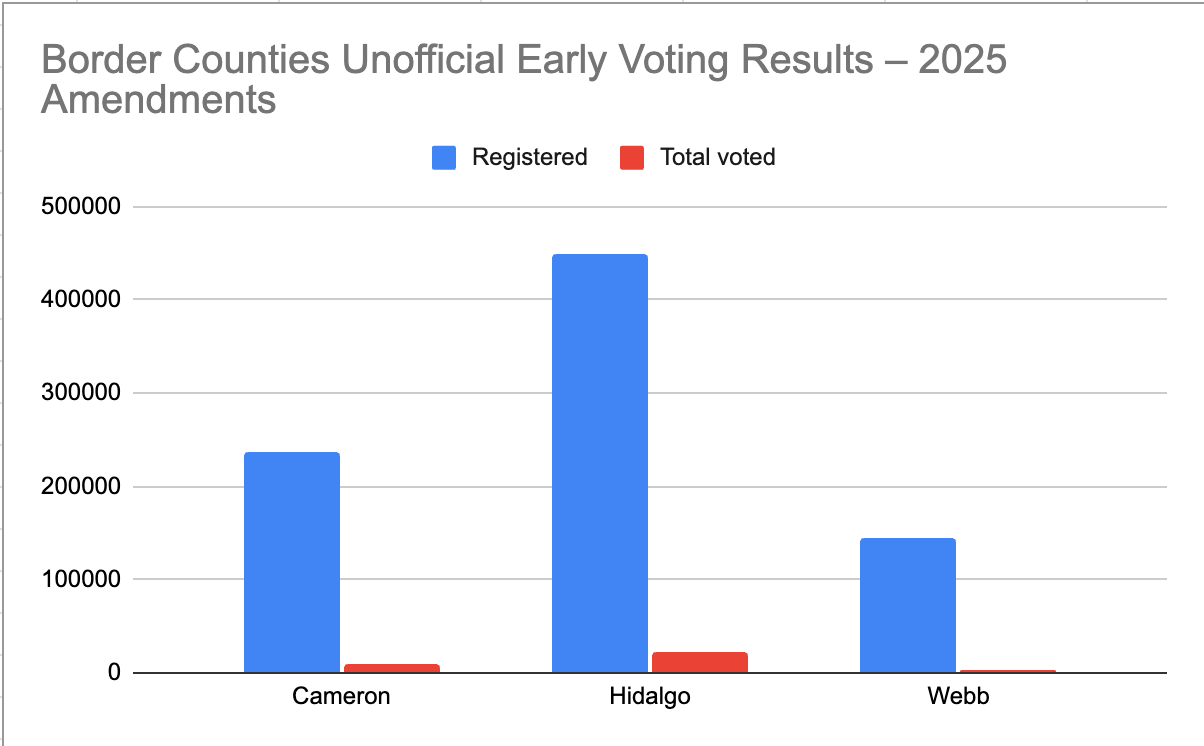Texas Votes — Or Loses Out: Border Communities at Risk
Low turnout lets the wealthy decide while everyday Texans get left behind.
Texas often brags about having the strongest economy in the nation, but most everyday Texans don’t see the benefits. The lack of a state income tax and heavy reliance on property taxes means corporations and the wealthy gain the most, while middle- and lower-income families struggle with rising housing costs, underfunded public schools, and stagnant wages. Big companies don’t automatically create good-paying jobs, yet some of the constitutional amendments on the ballot are designed to make the rich richer, giving even more advantages to those who already have wealth.
Part of the reason these policies persist is low voter turnout. From 1996 to 2020, you can see the rankings here. Texas has consistently ranked near the bottom nationally for voter turnout:
1996: 49th
2000: 48th
2004: 50th
2008: 50th
2012: 50th
2016: 50th
2020: 51st
Analysis: Unlike top states such as Minnesota, Wisconsin, and New Hampshire, which regularly achieve 70–80% turnout, Texas ranks in the bottom five every election. Minimal improvement over more than two decades reflects systemic issues: restrictive registration rules, limited early voting historically, lack of same-day registration, and structural obstacles that disproportionately affect minority and low-income voters.
When so few people vote, policy decisions skew toward the wealthy and politically connected, leaving public schools underfunded and average families behind. This is especially true for border communities, which stand to lose the most when voters don’t show up. The upcoming constitutional amendments illustrate this clearly: some proposals protect or expand wealth and corporate advantages, while the everyday needs of families, schools, and local communities are left largely unaddressed.
Grassroots organizing is critical. Across Texas, activists, volunteers, and local organizations are mobilizing communities, educating voters, and helping people overcome barriers to participation. But more needs to be done — these efforts can’t succeed unless more people engage, show up, and make their voices heard. This is a huge awakening, and it’s an opportunity for Texans to reclaim their power in the political process.
John Lewis Voters Coalition held a panel discussion on the 17 amendments and it was livestreamed by South Texas Grassroots Coalition. There was only one media outlet present who did a very good job at highlighting the need to understand what is in the amendments, the pros and cons.
Voting is the single most effective way to push back against a system that favors corporations over communities. Your vote is your voice — it’s how we can hold lawmakers accountable, fight for fairer tax policies, proper school funding, and real economic opportunity for everyday Texans.
Election Day is November 4. Don’t sit this one out — Texas needs you to show up.



